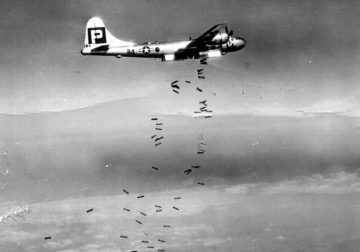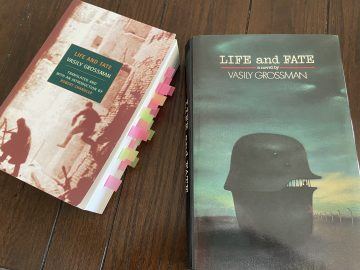by Ashutosh Jogalekar

“Black Snow: Curtis LeMay, the Firebombing of Tokyo and the Road to the Atomic Bomb”, by James M. Scott
On the night of March 9, 1945, almost 300 B-29 bombers took off from Tinian Island near Japan. Over the next six hours, 100,000 civilians in Tokyo were burnt to death, more possibly than in any six hour period in history. James Scott’s “Black Snow” tells the story of this horrific event which was both a technological and a moral failure. It is also the story of how moral failures can result from technological failures, a lesson that we should take to heart in an age when we understand technology less and less and morality perhaps even lesser.
The technological failure in Scott’s story is the failure of the most expensive technological project in World War 2, the B-29 bomber. The United States spent more than $3 billion on developing this wonder of modern technology, more than on the Manhattan Project. Soaring at 30,000 feet like an impregnable iron eagle, the B-29 was supposed to drop bombs with pinpoint precision on German and Japanese factories producing military hardware.
This precision bombing was considered not only a technological achievement but a moral one. Starting with Roosevelt’s plea in 1939 after the Germans invaded Poland and started the war, it was the United States’s policy not to indiscriminately bomb civilians. The preferred way, the moral way, was to do precision bombing during daytime rather than carpet bombing during nighttime. When the British, led by Arthur “Butcher” Harris, resorted to nighttime bombing using incendiaries, it was a moral watershed. Notoriously, in Hamburg in 1943 and Dresden in 1944, the British took advantage of the massive, large-scale fires caused by incendiaries to burn tens of thousands of civilians to death. Read more »

 On June 22, 1941, Nazi Germany attacked the Soviet Union in a typhoon of steel and firepower without precedent in history. In spite of telltale signs and repeated warnings, Joseph Stalin who had indulged in wishful thinking was caught completely off guard. He was so stunned that he became almost catatonic, shutting himself in his dacha, not even coming out to make a formal announcement. It was days later that he regained his composure and spoke to the nation from the heart, awakening a decrepit albeit enormous war machine that would change the fate of tens of millions forever. By this time, the German juggernaut had advanced almost to the doors of Moscow, and the Soviet Union threw everything that it had to stop Hitler from breaking down the door and bringing the whole rotten structure on the Russian people’s heads, as the Führer had boasted of doing.
On June 22, 1941, Nazi Germany attacked the Soviet Union in a typhoon of steel and firepower without precedent in history. In spite of telltale signs and repeated warnings, Joseph Stalin who had indulged in wishful thinking was caught completely off guard. He was so stunned that he became almost catatonic, shutting himself in his dacha, not even coming out to make a formal announcement. It was days later that he regained his composure and spoke to the nation from the heart, awakening a decrepit albeit enormous war machine that would change the fate of tens of millions forever. By this time, the German juggernaut had advanced almost to the doors of Moscow, and the Soviet Union threw everything that it had to stop Hitler from breaking down the door and bringing the whole rotten structure on the Russian people’s heads, as the Führer had boasted of doing.